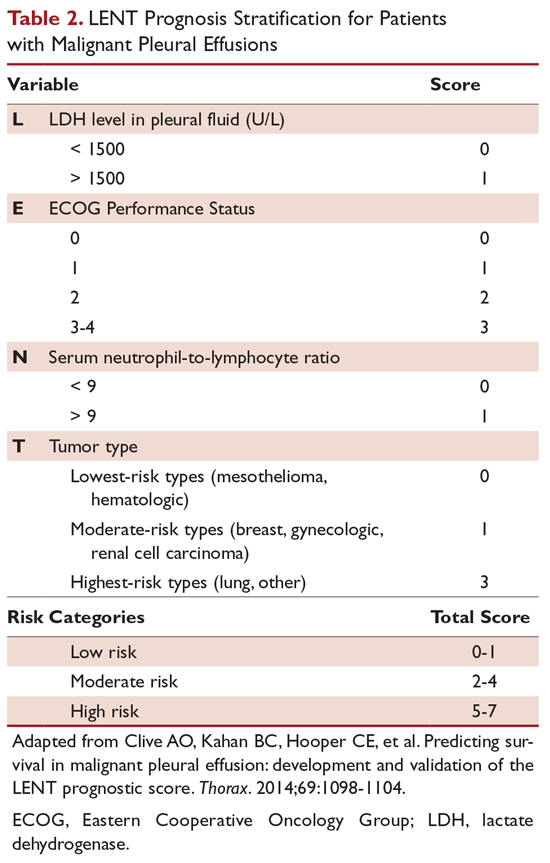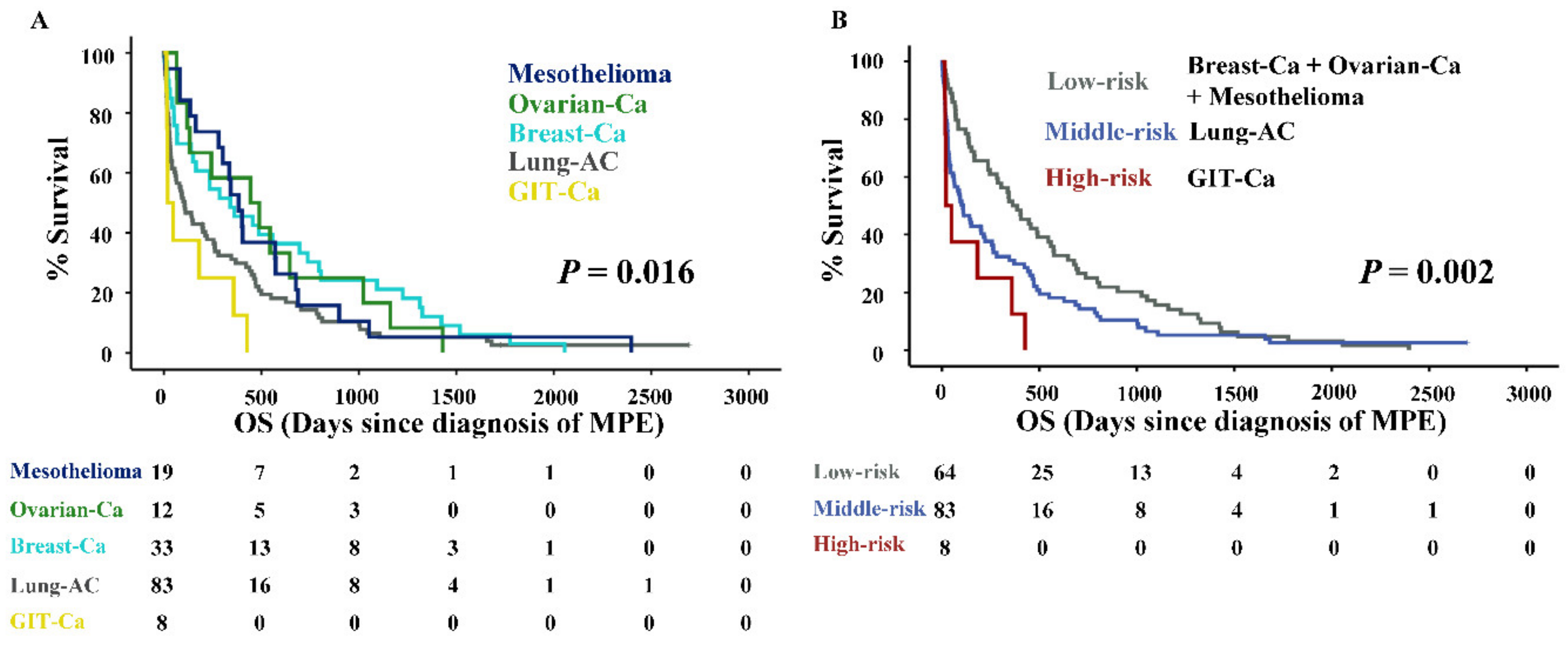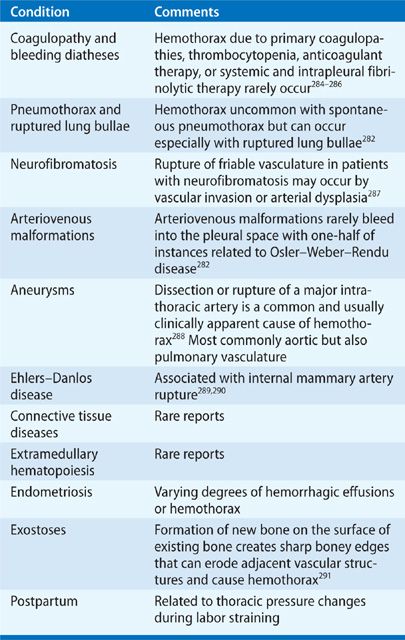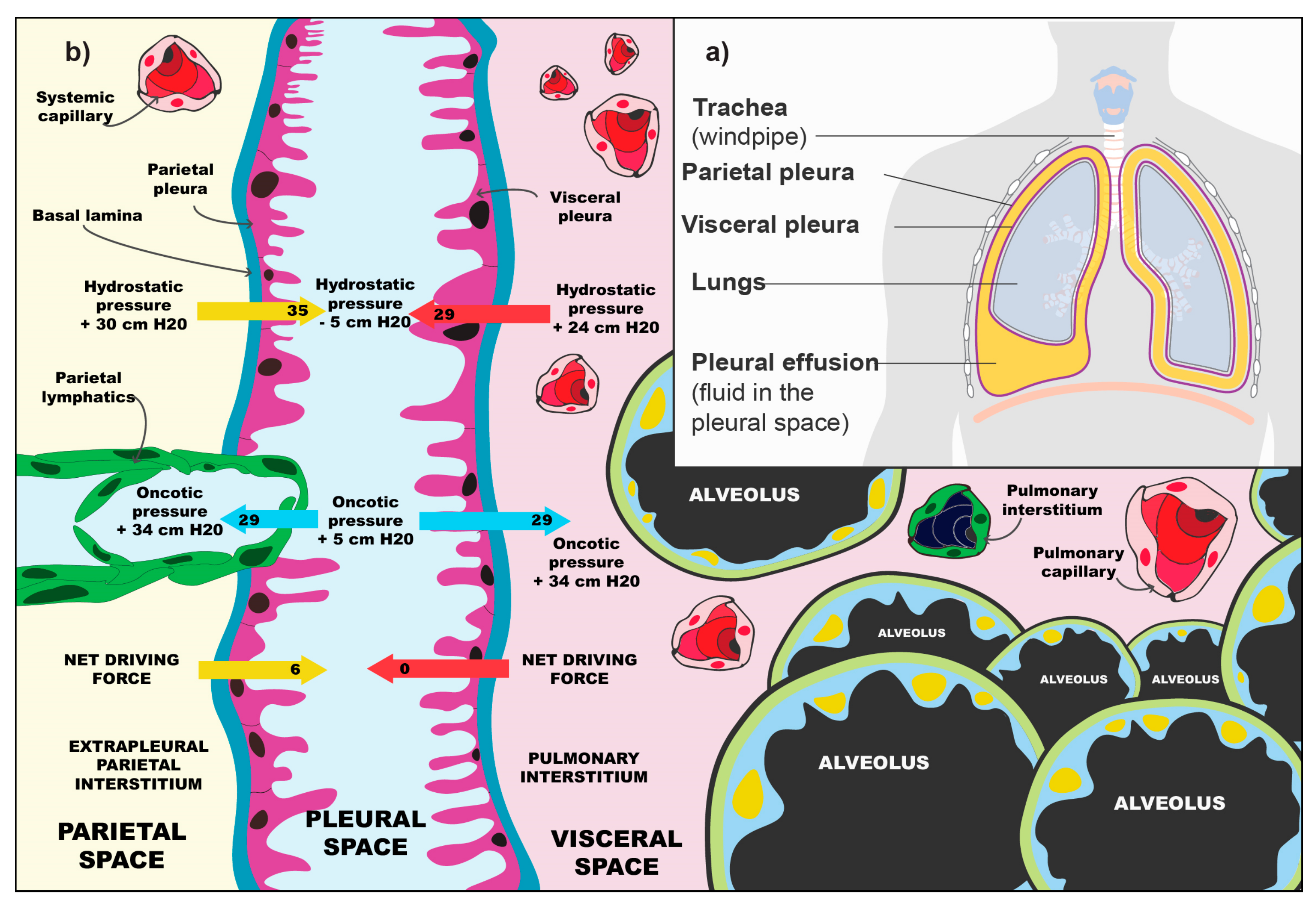what is the prognosis for malignant pleural effusion
The prognosis of the patient with a pleural effusion depends on the underlying condition. Certain medications abdominal surgery and radiation therapy may also cause pleural effusions.

Management Of Malignant Pleural Effusions The Figure Is Modified From Download Scientific Diagram
Symptomatic malignant pleural effusion is a common clinical problem.

. This can cause you to feel short of breath andor have chest discomfort. Respiratory symptoms include breathlessness cough and chest pain. Malignant pleural effusions are the major cause of pleural effusions in patients older than 40.
Dyspnea is the most common symptom of MPE. Development of a malignant pleural effusion is associated with a very poor prognosis with median survival of 4 months and mean survival of less than 1 year. Patients in these stages often have a poor prognosis with an average life expectancy of less than six months.
Malignant pleural effusion MPE affects 150000 people in the US and over 250000 people in Europe each year and it represents a common finding up to 15 in the advanced stage cancers 1. Most common causes of malignant pleural effusion are lung cancer breast cancer lymphoma and cancer of unknown primary. This condition is associated with very high mortality with life expectancy ranging from 3 to 12 months.
A pleural effusion can be serious and potentially life-threatening but it is treatable. The prognosis of cases where the effusion is due to carcinoma of the lung or due to cancer of the. A malignant pleural effusion is when the fluid builds up because of cancer The most common form of cancer that starts in the pleura is mesothelioma a cancer often caused by exposure to asbestos Cancer from anywhere in the body can spread to the pleura but the two commonest cancers to do this are lung cancer and breast cancer.
Malignant Pleural Effusion A malignant pleural effusion MPE is the build up of fluid and cancer cells that collects between the chest wall and the lung. Studies are contributing evidence on an increasing number of therapeutic options therapeutic thoracentesis thoracoscopic pleurodesis or thoracic drainage indwelling pleural catheter. The most common underlying tumors are lymphomas and cancers of the lung breast and ovaries which account for 75 of cases.
The clinical history of patients with malignant pleural effusion MPE can be variable. We take oxygen in through. MPE is an aggressive disease with a uniformly fatal prognosis and a life expectancy of only 3 to 12 months.
They found a tumor on my right lung. What is a malignant pleural effusion. Malignant effusions may change the staging and subsequent prognosis of the underlying cancer.
A complication in many types of tumors its presence indicates the onset of the terminal stages of cancer. In some cases the fluid itself may be malignant cancerous or may be a direct result of chemotherapy. This can cause you to have chest discomfort as well as feel short of breath.
Common symptoms include dyspnea on exertion shortness of breath and cough. Am J Respir Crit Care Med Vol. Malignant Pleural Effusions malignant pleural effusion MPE is the build up of fluid and cancer cells that collects between the chest wall and the lung.
The most frequent causes of malignant pleural effusions are pleural metastatic adenocarcinomas arising from. The shortest survival time is observed in malignant effusions secondary to lung cancer and. The medial survival of patients with breast cancer was 6 months and those with either lung cancer or lymphoma had a median survival of 4 months Tables 3and and44.
It is a fairly common complication in a number of different cancers. Malignant pleural effusions MPE are a common terminal pathway for many cancers with an estimated United States incidence of more than 150000 cases per year. Malignant pleural effusion MPE is a common and important clinical condition.
Lung cancer in men and breast cancer in women account for 5065 of all MPE 2 followed by ovarian metastatic cancer hematological malignancies and malignant pleural. It is a fairly common complication in a number of different cancers. Chemical pleurodesis is one of the options to avoid development of recurrent pleural effusions and thus palliate symptoms.
Their treatment is essentially palliative but recently improved with new efficient chemotherapy. The presence of malignant pleural effusion eliminates the possibility of radical cancer treatment but palliative care plays an important role for these patients. Patients with pleural effusion and ovarian cancer had the best median survival 21 months compared with those with other primary tumors.
Most patients will be symptomatic although up to 25 percent may be asymptomatic with the effusion discovered incidentally during imaging for another reason. Patients with malignant pleural effusions have a poor prognosis and pleural effusion is considered metastatic disease. If cancer grows in the pleural space it causes a malignant pleural effusion This condition is a sign that the cancer has spread or metastasized to other areas of the body.
The median survival time the time at which 50 percent of people will have died is four months though some people survive longer. Prognosis of Malignant Pleural Effusion As previously mentioned this condition often indicates the presence of advanced stage lung cancer or breast cancer. However most patients with a pleural effusion have no long-term sequelae.
Pleural effusion may occur with several types of cancer including lung cancer breast cancer and lymphoma. Development of a malignant pleural effusion is associated with a very poor prognosis with median survival of 4 months and mean survival of less than 1 year. Oxygen is extremely important when it comes to our survival.
Sadly the average life expectancy for lung cancer with a malignant pleural effusion is less than six months. If due to heart failure cirrhosis or malignancy the effusion is likely to recur. Ad The lungs are constantly inhaling and exhaling in order to provide our body with a steady.
Pleural effusion cancer life expectancy - Malignant pleural effusion is a complication involving the accumulation of fluid containing cancer cells between the membranes covering the lungs. The average malignant pleural effusion life expectancy is a little less than six months with the median survival time being as less as four months.

Prognostic Impact Of Malignant Pleural Effusion At Presentation In Patients With Metastatic Non Small Cell Lung Cancer Journal Of Thoracic Oncology

Prognostic Factors For Survival After Surgical Palliation Of Malignant Pleural Effusion Journal Of Thoracic Oncology

Prevalence Clinical Characteristics And Outcome Of Pleural Effusions In Ovarian Cancer

Ers Eacts Statement On The Management Of Malignant Pleural Effusions European Respiratory Society

Survival Of Lung Adenocarcinoma Patients With Malignant Pleural Effusion European Respiratory Society

Characteristics Of Patients With Malignant Pleural Effusion Download Table

Algorithm For The Management Of Malignant Pleural Effusion 36 Adopted Download Scientific Diagram

Malignant Pleural Effusion Management Keeping The Flood Gates Shut The Lancet Respiratory Medicine

Malignant Pleural Effusion Evaluation And Diagnosis Pulmonary Health Hub

Cancers Free Full Text Prognostic Immune Cell Profiling Of Malignant Pleural Effusion Patients By Computerized Immunohistochemical And Transcriptional Analysis Html
Malignant Pleural Effusion Still A Long Way To Go Researcher An

Overall Survival Probability According To Malignant Pleural Effusion Download Scientific Diagram

Malignant Pleural Effusions Thoracic Key

The Diagnostic Steps In Suspected Malignant Pleural Effusion Table 1 Download Scientific Diagram

Algorithm For The Management Of Malignant Pleural Download Scientific Diagram

Prevalence Clinical Characteristics And Outcome Of Pleural Effusions In Ovarian Cancer

Overview Of The Most Common Malignant Diseases Associated With Download Scientific Diagram

Medicina Free Full Text Malignant Pleural Effusion And Its Current Management A Review Html

Treatment Options For Malignant Pleural Effusions Download Table